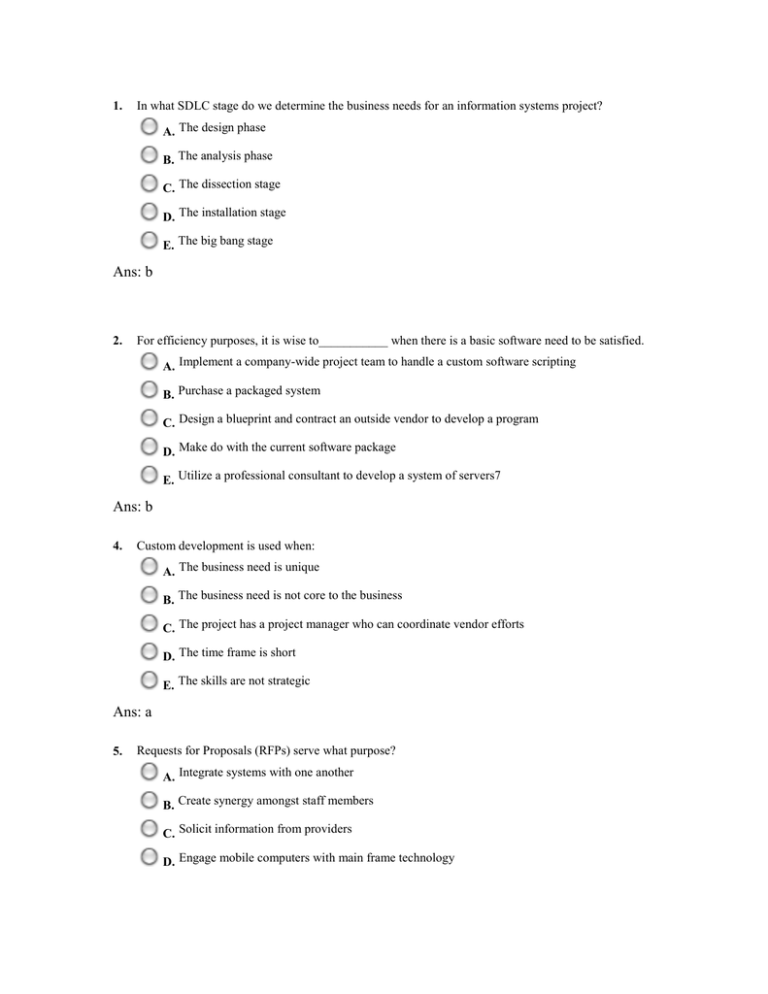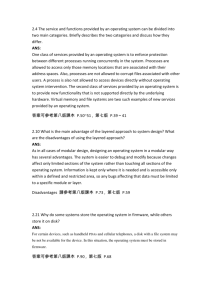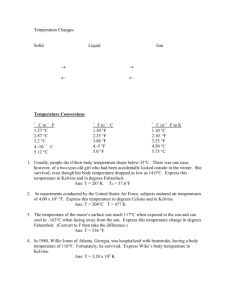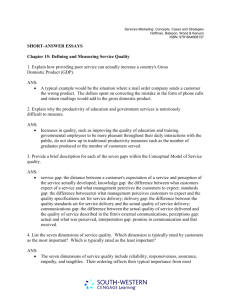1. In what SDLC stage do we determine the business needs for an
advertisement

1. In what SDLC stage do we determine the business needs for an information systems project? A. The design phase B. The analysis phase C. The dissection stage D. The installation stage E. The big bang stage Ans: b 2. For efficiency purposes, it is wise to___________ when there is a basic software need to be satisfied. A. Implement a company-wide project team to handle a custom software scripting B. Purchase a packaged system C. Design a blueprint and contract an outside vendor to develop a program D. Make do with the current software package E. Utilize a professional consultant to develop a system of servers7 Ans: b 4. Custom development is used when: A. The business need is unique B. The business need is not core to the business C. The project has a project manager who can coordinate vendor efforts D. The time frame is short E. The skills are not strategic Ans: a 5. Requests for Proposals (RFPs) serve what purpose? A. Integrate systems with one another B. Create synergy amongst staff members C. Solicit information from providers D. Engage mobile computers with main frame technology E. Develop morale amongst managers Ans: c 6. The decision to make, to buy, or to outsource influences the design tasks that are performed throughout the rest of the design phase. A. True B. False Ans: a 7. Prototyping is the interface design step that often uncovers additional information that is needed in the system, leading to a revision of the physical DFDs or ERPs. A. True B. False Ans: a 9. Outsourcing requires the least in-house resources. A. True B. False Ans: b 10. The score column in the Alternative Matrix represents how easily specific criteria are met by the alternative. A. True B. False Ans: a NEW QUESTIONS: 1) Custom development involves which of the following personnel? a) Database administrator b) c) d) e) System analysts Developers Project managers All of the above Ans: e 2) A system specification is a _________ for the future system. a) Test case b) Blue print c) Use case d) Technical overview e) Executive summary Ans: b 3) The system specification will be altered during implementation when the waterfall methodology is followed. a) True b) False Ans: b 4) The data storage design is the last deliverable when creating a system specification. a) True b) False Ans: a 5) Vendors are usually involved in custom development projects. a) True b) False Ans: b







